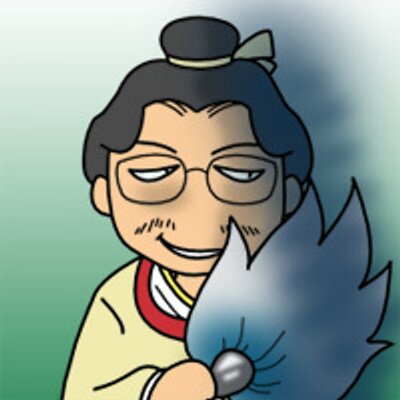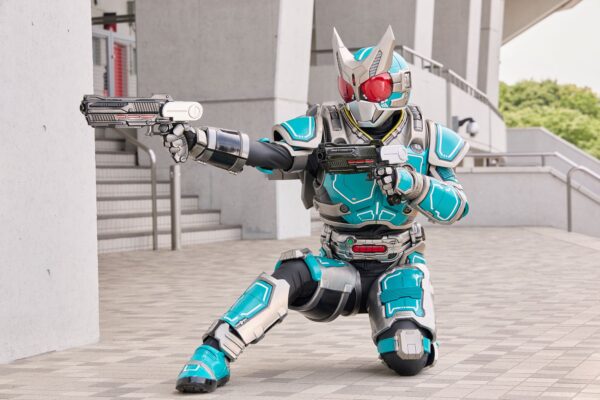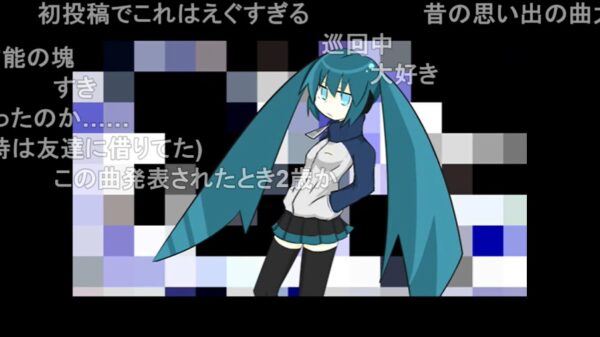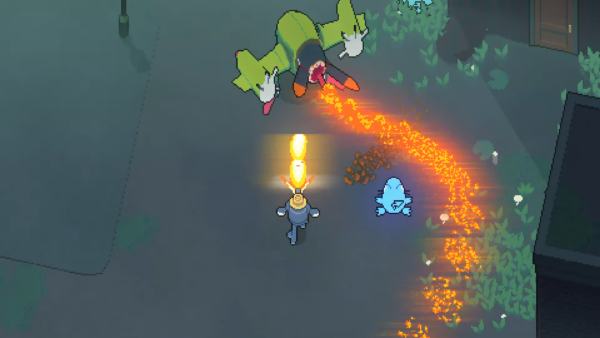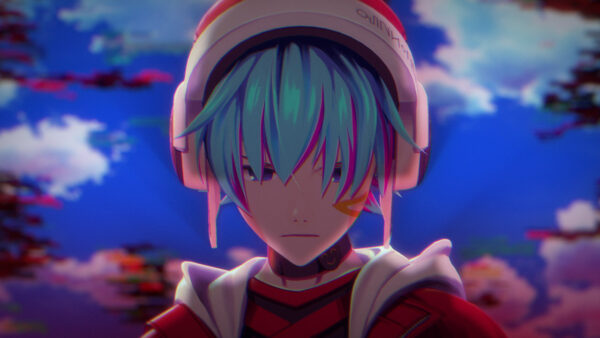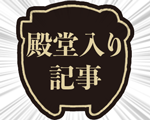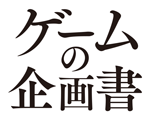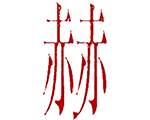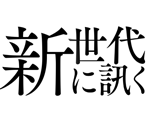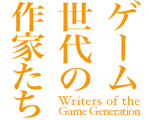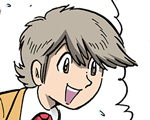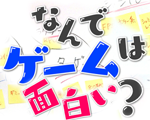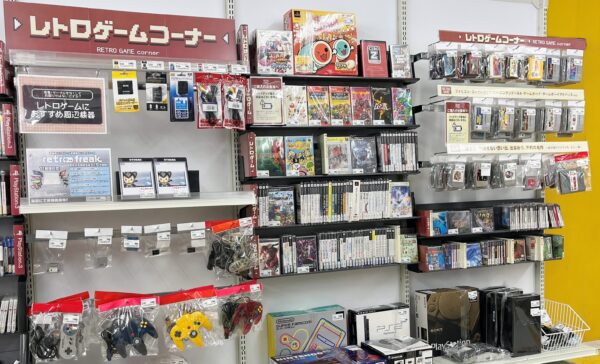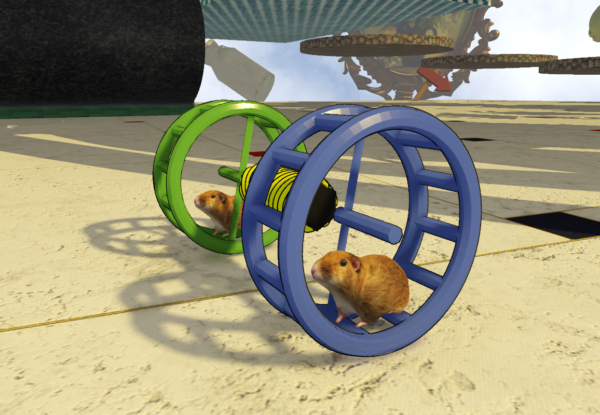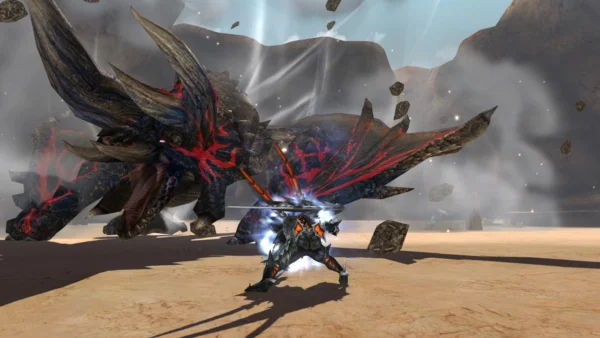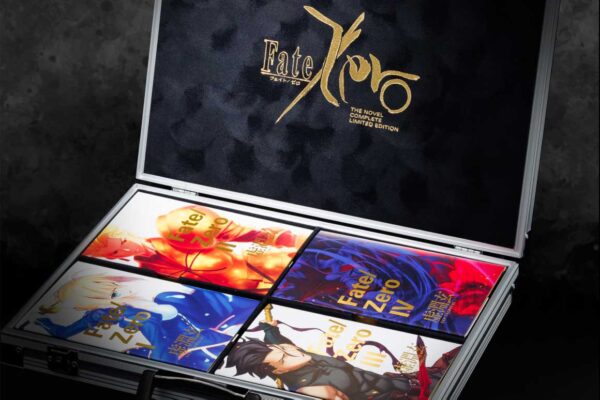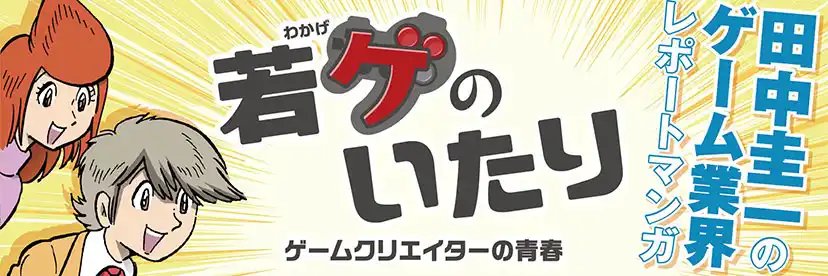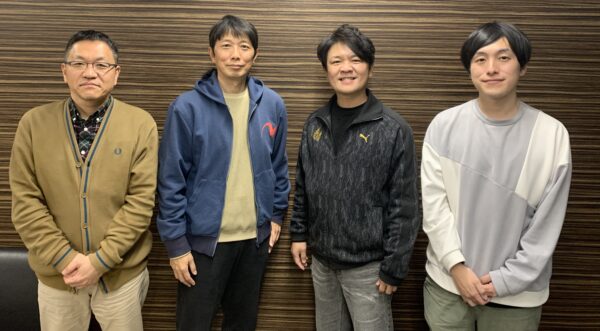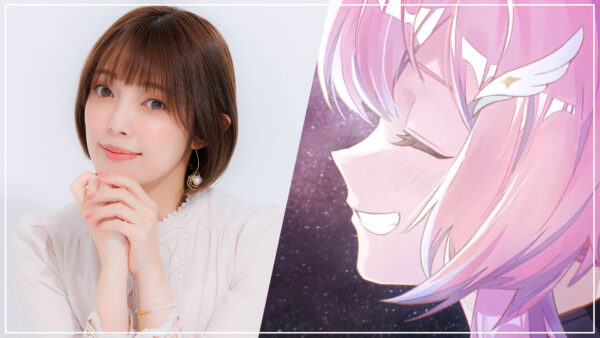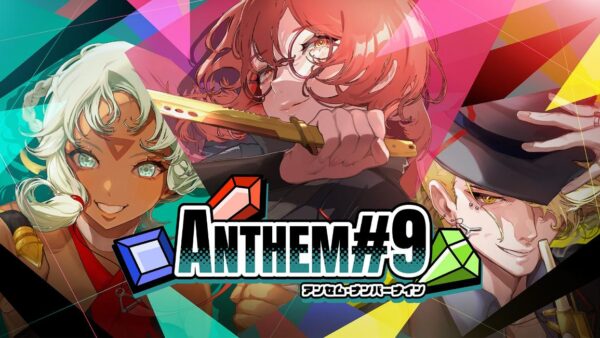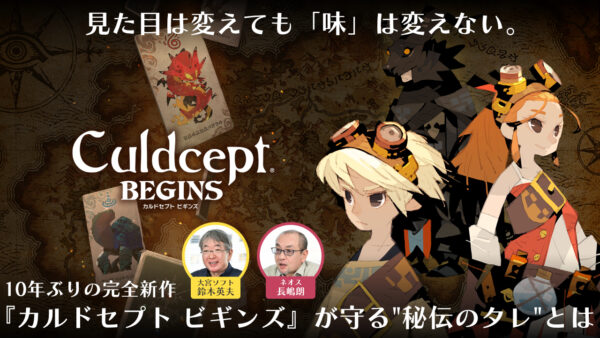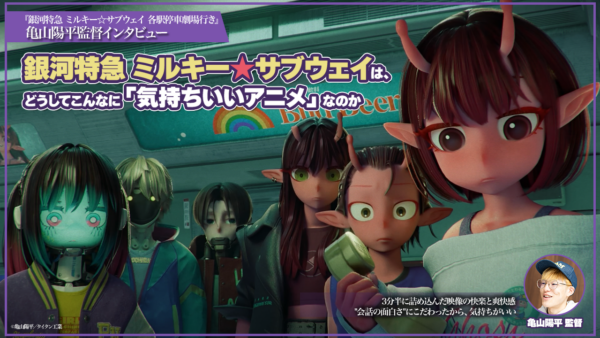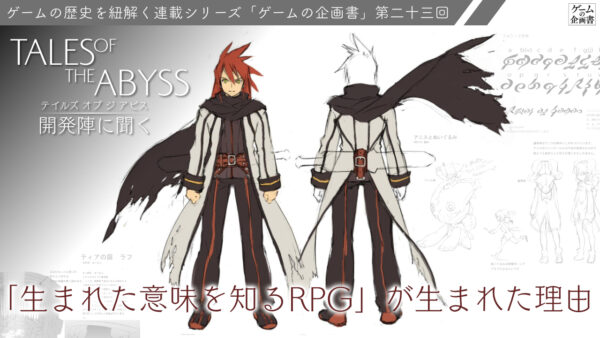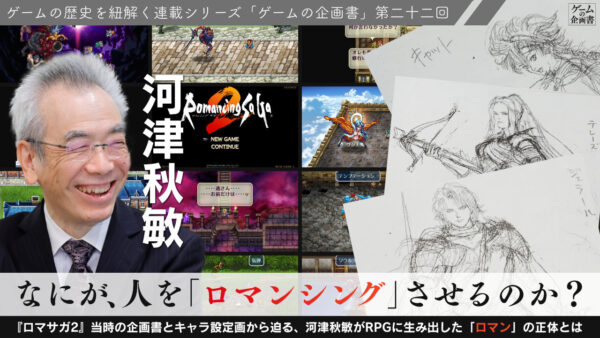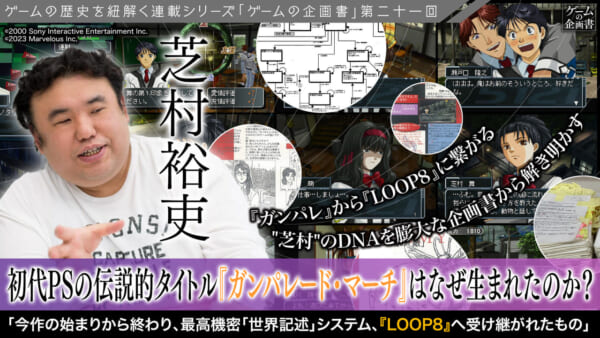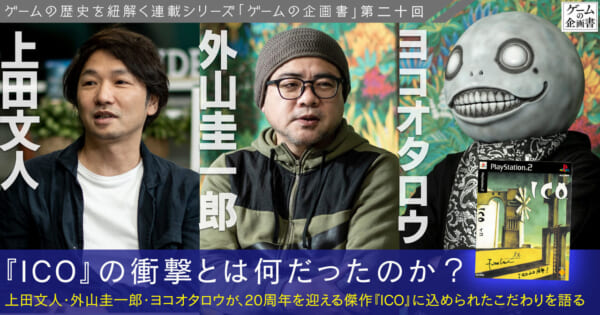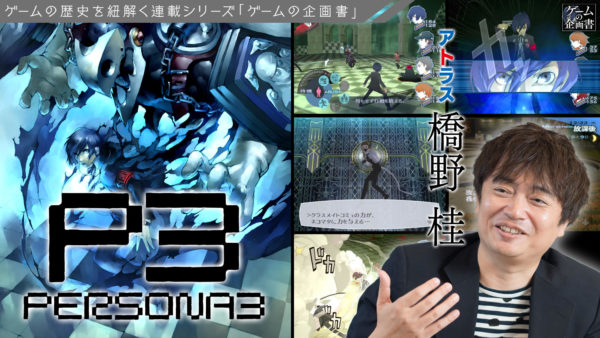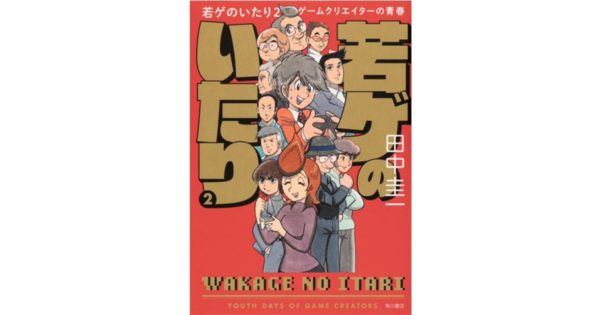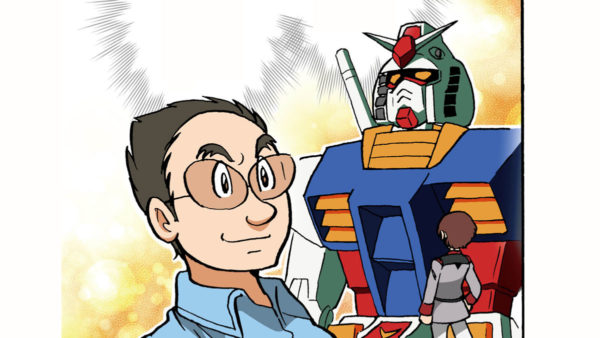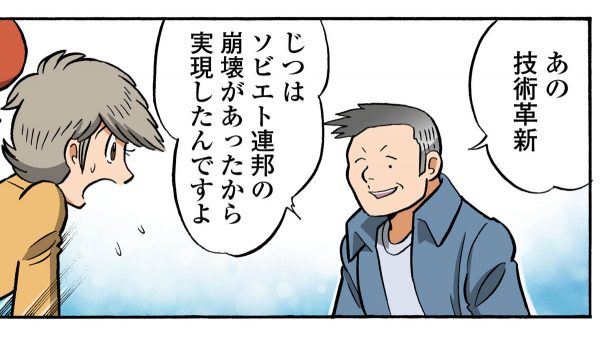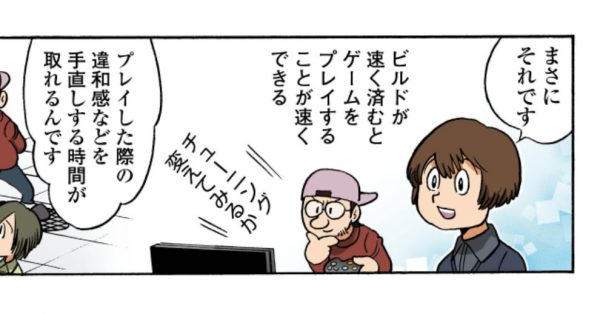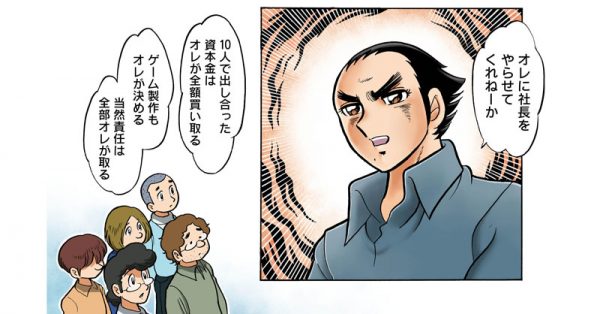The Chaos Itself, the Development System of “Majora”
Fujisawa:
One of the things I want to ask you is the things about Nintendo’s manufacturing system. For example, the documents that you prepared say that there were many directors for the development of “The Legend of Zelda: Ocarina of Time (LOZOOT)”. But I can’t help thinking whether it is possible.
Aonuma:
Well, there were many directors until “The Legend of Zelda: Majora’s Mask (LOZMM)”. After that, it became a one-director system. But it is not like the boundaries of work were clearly defined. We feel like going over the boundary if we are told that we should only stay within that boundary. If not, we want to try everything from the beginning.(laughs)
Fujisawa:
Well, people say the boundary is there to be overcome.
Aonuma:
Even when I was making “The Legend of Zelda: Ocarina of Time (LOZOOT)”, I was still designing different kinds of demo movies and was working on the field work at the end. In the next work, “The Legend of Zelda: Majora’s Mask (LOZMM)”, I was going to be in charge of designing the dungeons, but somehow, I became the director. I felt anxious about being the only director, so I called in Yoshiaki Koizumi[*], who was the 3D director for Ocarina. . When I asked him to join us, he said, “I’d go only if you let me do whatever I want to do.” And the result was the “Three-Day System.”
*Yoshiaki Koizumi
Nintendo’s Deputy General Managerof the company’s Entertainment Planning & Development Division. He was in charge of character design and was the 3D system director for “The Legend of Zelda: Ocarina of Time (LOZOOT)”. He was the director along with Mr. Aonuma for “The Legend of Zelda: Majora’s Mask (LOZMM)”, which was the most popular game at that time. He was also in charge of manufacturing the Clock Town, the center city in the game. He contributed hugely to the creativity of The Legend of Zelda: Majora’s Mask (LOZMM).
![Talk: Latest Zelda’s making process & “Ocarina of Time” proposal disclosed[Nintendo Eiji Aonuma x SQEX Jin Fujisawa]_034](https://news.denfaminicogamer.jp/wp-content/uploads/2017/03/mask-1024x599.jpg)
(Image: a clip from the official website of 3DS version)
Actually, my favorite is “The Legend of Zelda: Majora’s Mask (LOZMM)”. Especially the scene in the second half where the character acquires the “Couple’s Mask”[*], that is my favorite scene in the whole “LOZ” series.
I played it when the work on “DQ7” was kind of taking on a slow pace. It was also a time when I was struggling to come up with a good story for the game. People often said that, “there are stories [that can] only can be played in a game,” but I was kind of skeptical because I didn’t really understand what it meant. I was like, “Does it really exist?”
But in that “Couple’s Mask” story, when I saw Link standing next to a woman who is waiting for her fiancée to come as the world being destroyed, I realized that it was kind of moving feeling that a game can give.
*A scene where the player acquires the “Couple’s Mask
The scene appears in “The Legend of Zelda: Majora’s Mask (LOZMM)”. The “Couple’s Mask” is an item that the player can acquire when winning “Anju & Kafei,” a sub-event lasting three days. There is Kafei, who became a child due to the magic spell cast by skull kid, who destroys the world, and was lost suspiciously. And there is Anju, who is anxious and worried about the true feeling of her fiancée. The events get started as Link tries to restore the relationship between Kafei and Anju.
Aonuma:
Actually, the event started when I attended a wedding of a staff member with Mr. Koizumi after “The Legend of Zelda: Ocarina of Time (LOZOOT)” was completed. We started talking and realized we have never seen weddings in the gaming world.
Fujisawa:
That’s how it got started. I see. It looks like “graduation” in a way, when you look at the part where there is a person who is waiting and a person coming to greet.
The impressive thing in that scene was that it was describing “the anxiety that you can only feel in a game.” After going through many processes, the player just waits to clear the remaining quests. The waiting that you feel while thinking whether it is the best way to solve the problem is same as the feeling of a character who waits for her fiancée who might not come.
Aonuma:
The scene was based on the my generation’s perception on marriage, but was meant to be solved at the end to make the players feel dramatic. So the waiting process was put in intentionally. We dragged [it out] till the very end.
Fujisawa:
Did I get fooled by those intentions? (laughs)Further, the NPCs in “The Legend of Zelda: Majora’s Mask (LOZMM)” are very characteristic. For example, characters such as Tingle were very defiant.
Aonuma:
I tried to use all the NPCs made in “The Legend of Zelda: Ocarina of Time (LOZOOT)”. But they weren’t really the same and were kind of changed in a bad way, like a parody of “The Legend of Zelda: Ocarina of Time (LOZOOT)”. It has a spooky feeling and the dungeon has a really high level of difficulty. I guess you can call it a challenge sent to the players who played “The Legend of Zelda: Ocarina of Time (LOZOOT)”.
――You can tell that CM were defiant[*].
*”Majora”’s CM
It has a very scary scene where the moon is getting close to the Earth to destroy the world. It described a dark world with provocative phrases such as, “You don’t know how scary the moon can be” and “You don’t understand the fear behind the masks” while putting up a heinous moon to destroy the world as well as unpleasant looking masks on the screen.
Aonuma:
I did my best to finish it within a year after I was done with “The Legend of Zelda: Ocarina of Time (LOZOOT)”. And I went out of my mind in the whole time. The atmosphere that we could set a higher goal because we have done a good job with “”The Legend of Zelda: Ocarina of Time (LOZOOT)” was the driving force for making that game. I still think we were lucky that we could actually achieve our goal even though we started off unprepared.
Fujisawa:
It’s not actually rare to hear that a product born in a chaotic situation gets a good review.(laughs)
I don’t know whether it was because o that atmosphere, but there are many “LOZ” fans about my age who say “The Legend of Zelda: Majora’s Mask (LOZMM)” is their favorite. That non-linear type of game design had so much impact on the other games.
Aonuma:
I heard that hardcore players love “The Legend of Zelda: Majora’s Mask (LOZMM)” more, so it’s kind of ironic for me. To be honest with you, I could only get an approval for development because I made a game of that size back then. If you ask me [to make] that kind of game again, I can’t do it.
![Talk: Latest Zelda’s making process & “Ocarina of Time” proposal disclosed[Nintendo Eiji Aonuma x SQEX Jin Fujisawa]_035](https://news.denfaminicogamer.jp/wp-content/uploads/2017/03/ISM_9447-1024x681.jpg) |
Further, I think it would be hard to make a game in a realistic sense if you are so involved in such a chaotic environment. It was hard to make “LOZ,” but it was not as bad as making other games where I had no personal life at all. So I realized that if you want to keep making games that people can relate to, the producers need to have balanced lives outside the company.
Development System: 300 people playing the game together
――I would like to learn more about the development style at Nintendo. For example, the game developers in previous generations said that all the team members used to look at the whole game and cared for the details when the team was small. The problem of the developers not being able to divide the work as efficiently is said to be the problem that the Japanese game industry had entering into the 21st century because the scale of the development team became so big. I wonder what Nintendo is doing to solve the problem.
Fujisawa:
It is interesting. Nintendo still makes products like “Splatoon”. I guess it has something to do with the fact that we have many directors, but I’m sure that the outsiders might think it is mysterious.
――For example, how about this “LOZ?”
Aonuma:
In this product, we agreed from the beginning that even though the movements of the detailed parts were a bit weird, it would not damage the fun of playing this game. Instead of getting rid of “all” the bugs, we tried to adjust the general balance such as the distribution map of “where does the monster come [from]” in this world until we were satisfied. I guess the viewpoint on that was different from the existing development method.
But the person in charge of that duty was up to his neck in work. I became curious, so I asked the staff members and they said that there were many cases of one balance going off when the other balance were set up. I guess it was due to the miscommunication between the staff members.
――I see. So there was a miscommunication problem in a big development team, even at Nintendo.
Aonuma:
Well, I think it is inevitable to have that kind of problem when we are making such a big world. What matters is how fast we fix the problem when we get one. When we have that kind of problem, the game developer would know exactly what to do to fix it if he had played the game.
![Talk: Latest Zelda’s making process & “Ocarina of Time” proposal disclosed[Nintendo Eiji Aonuma x SQEX Jin Fujisawa]_036](https://news.denfaminicogamer.jp/wp-content/uploads/2017/03/ISM_9445-1024x697.jpg) |
So, our first priority with this production was to make sure that all the members of the development department would play the game. In the period of four years, I think everybody convened and played the game at least 10 times.
Fujisawa:
Wow. Did everybody play it together?
Aonuma:
Yes. In the early stage of development, it took about a day to play it, but at the end, it took about a week to see the whole image. When that happens, you want to just eliminate the process, but you can’t. The rule was that everybody plays it and we stuck to it till the end.
――Well, it sounds ridiculous to me, but you’re saying it as if it’s nothing. How many people were there on the development team?
Aonuma:
Let’s see. Programmers, designers, sound effects team……I guess at the end, there were 300 people playing the game.
Everybody:
(laughs)
――300 playing for a week. That must have cost you a lot of money. Not only that, you played it how many times…?
Fujisawa:
While making “DQ”, we adjusted the schedule and squeezed a day out of it so the whole development team could play it to gather their opinions. But a week is a very, very long time.
![Talk: Latest Zelda’s making process & “Ocarina of Time” proposal disclosed[Nintendo Eiji Aonuma x SQEX Jin Fujisawa]_037](https://news.denfaminicogamer.jp/wp-content/uploads/2017/03/ISM_9454-1024x698.jpg) |
Aonuma:
Well, it was only the last playthrough where all the 300 staff members played it together. Of course, as a producer, I wanted to spend the least amount of money on that part to save development money, but the developers who do the hands-on work were opposed to it. So I decided to think big and let everybody play it for a week. Then you realize there are problems that you can only find by playing it.
Ultimately, each staff member has different ideas for the game, so it is better to get together and play it for a review. That way, it is clear for everybody to see “what works and what doesn’t,”
Because it is really difficult for the head of the team to deliver his ideas only in words to all staff members. But when we play it together, then it gets each for us to communicate with each other like, “There is a problem…” and “You think so, too?” By going in reverse, I think we could dramatically cut down on the time cost for such a big world.
――Since you say it like it was so natural to do, there is nothing I can say but I agree..(laughs)But I don’t know how many companies in Japan or in other place in the world, for that matter, that they have saved so much time by letting 300 staff members play the game for the entire week.
Fujisawa:
To think about the fundamental problem, I think the reason that Japanese game makers don’t try open world games is because they have to use a totally different development method. They only use a way of upgrading a wiki daily by organizing specifications or focusing on proper communication. They can’t decide to give up on the old method that they have been using. The North American game developers have a proper management for that kind of labor division.
By the way, I think it is a general opinion that Nintendo didn’t really pay attention to this kind of problem. What do you think?
――Is that so? Regarding the problem that the current game developers face, I think I’ve never seen a solution like we had with “LOZ” at Nintendo. The whole team plays the game together even though the team has 300 people. And the members exchange opinions on the each detail and complete the project. I think it is very Japanese thing to do.(laughs)
How did They correspond to the Open World
Fujisawa:
The other thing that I was impressed with was that this “LOZ” had kept the grammar of the Open World.
Japanese developers make games based on the logic, in a good way as well as in a bad way, of “let’s make the player play the game in this order because I want him to experience this.” However, what the developer of an Open World game makes is the “providence” of the world, which completes the world, not the experience that the players are meant to have. The way of thinking should be changed so the players can decide what to experience.
What Mr. Aonuma has been telling us [about] is the change of ideas, but I don’t think it was easy to carry out. Especially, I think it would have been hard for a company with long history such as Nintendo, for it must have its own ways to do things.
Aonuma:
Of course. It was really hard for us. In the beginning, there was so much of dissonance everywhere and we were worried that the team might get broken down.
Above all things, the programmer who has been participating the “LOZ” series from the very beginning assured that it is not something that we could evaluate. The reason that we used the Havok engine was because we were told we would never make a fun “LOZ” if we kept our work style.
Fujisawa:
You always have that kind of problem. When it comes to a change of a methodology, not a technical problem, it’s even harder to change people’s minds.
![Talk: Latest Zelda’s making process & “Ocarina of Time” proposal disclosed[Nintendo Eiji Aonuma x SQEX Jin Fujisawa]_038](https://news.denfaminicogamer.jp/wp-content/uploads/2017/03/img003-600x338.jpg)
(*Image: a clip from Wii U version, from the Dragon QuestX official website)
Actually, I had a same experience when I was trying to put the “10” game online. At that time, we had two opinions in the company. One was saying, “an online game should be like this,” and the other was saying, “a DQ should be like that.” And nobody was giving up his opinion on that matter.
――For the MMO[*] genre, the ideas are also very important. Just like the Open World.
*MMO
The exact spelling is MMORPG. An acronym for Massively Multiplayer Online Role Playing Game. A role playing game in which numerous players can access the world that has been created on the game company’s server. For example, the “Dragon QuestX” series that Mr. Fujisawa created, “World of Warcraft”,”Final fantasy XI” and “XIV”.
Fujisawa:
In “10”, I clarified that the goal of this project is to make “DQ” first. But it was just a slogan, not the final goal. But it was necessary to make that clarification. How about you, Mr. Aonuma?
Aonuma:
Hum, that kind of clarification was impossible for us to make. I guess time solved the problem. After spending four years, the staff members started to think that there was no solution other that what we had.(laughs)
Everybody:
(laughs)
Fujisawa:
I think I can understand that. I think it is true that there is something only the time can solve.
――But was there any time that you felt anxious, Mr. Aonuma?
Aonuma:
Of course, I was anxious. As I get older, there are times I feel the generation gap with young people. It’s when I want to stick to the old way that I’m comfortable with. So I think I should try to have a flexible view on the world and I should leave the job when it becomes impossible to do so.
![Talk: Latest Zelda’s making process & “Ocarina of Time” proposal disclosed[Nintendo Eiji Aonuma x SQEX Jin Fujisawa]_039](https://news.denfaminicogamer.jp/wp-content/uploads/2017/03/ISM_9378-1024x681.jpg) |
But it was not like that. There were only people who challenged my views. So I had to wait for the problem to be solved. I knew it had no meaning to make the game unless it was changed and I decided to take time to make a totally different “LOZ.” Although that was my idea, I was going to try the game with small number of people. Then I realized I had 300 staff members and I couldn’t give up now. So I was determined to complete the game. That’s the truth.(laughs)
“So what is the answer for the series title?”
――We have been talking about many thing so far and I guess the time is running out.
Aonuma:
Wait, stop!
I guess we still haven’t figured out the answer for whether we should keep going with the series title we ever made. I’d hate to see Mr. Fujisawa go back without good ideas about that.(laughs)
――I see. Mr. Fujisawa, what do you think about that?
Fujisawa:
No, it’s fine. Actually I was enjoying the conversation so much and I forgot that we should think about that.
Everybody:
(laughs)
Fujisawa:
But I want to ask you a question, though. In what way is Mr. Miyamoto involved with the development? I think it would be difficult to finish the project when there are two leaders in a team.
![Talk: Latest Zelda’s making process & “Ocarina of Time” proposal disclosed[Nintendo Eiji Aonuma x SQEX Jin Fujisawa]_040](https://news.denfaminicogamer.jp/wp-content/uploads/2017/03/ISM_9412-1024x691.jpg) |
Aonuma:
Basically, Mr. Miyamoto gave me a choice first for everything. For the ideas I came up with, he was like, “Well, there are things that I don’t like, but he will make it work in the end” and he just took a step back. But he is still Mr. Miyamoto. Still, there were times that he just called it off at the very end.
Fujisawa:
Oh, really?
Aonuma:
The difference was the timing. Beforehand, he called it off right before the completion stage and we would scream, “It will take another six months if you want us to change it!” But these days, he would tell us what needs to be done in terms of balance and outlook on the completion in the very early stage. Also, the things he wants to change are small details in the game. Actually, Mr. Miyamoto didn’t change anything in “Breath of the Wild (LOZBOW)”. Rather, he showed satisfaction on his face after he played the game.
Fujisawa:
He looked “satisfied” with the game. (laughs)
Aonuma:
He never says, “This is good” in the field. When Mr. Itawa was here, he would tell me that Mr. Miyamoto loved the game. But then I would go, “What? He never told me that!”
Fujisawa:
So you would hear it through someone else.(laughs) Actually, Mr. Horii never made any compliments to me directly, but other people would tell me that I’m doing “okay.”
Aonuma:
I guess that’s the way it is with everybody. When I get a compliment, it would be reassure and a relief for me. So I think there are pros to getting a compliment on your work at the spot.
Fujisawa:
I guess so. Although you could say Mr. Horii was my “teacher,” Mr. Horii was not a kind of teacher who teaches you aggressively. So there was no strict relationship like the master and one’s pupil. It was more like I was helping Mr. Horii make the game and I just got to see the whole process.
Don’t worship “Shigeru Miyamoto” like God.
Aonuma:
Well, as I was listening to you, I realize that my relationship with Mr. Miyamoto is that of boss and his junior staff. Maybe that’s why I am still making the “LOZ.”
Fujisawa:
That’s possible. Mr. Horii is a freelancer. There is a big difference.
Aonuma:
I think that Mr. Miyamoto is a great man, but someday I want to surpass him.
――Ohhhhhh.
Aonuma:
Well, because I’m working with him in the same building. I heard there are people overseas who worship Mr. Miyamoto like God, but I’m not like that. And I think I’ll exceed him some day. That hasn’t happened yet, though. But I don’t think he is a divine being. He is somebody you can catch up with. That’s why we end up trying.
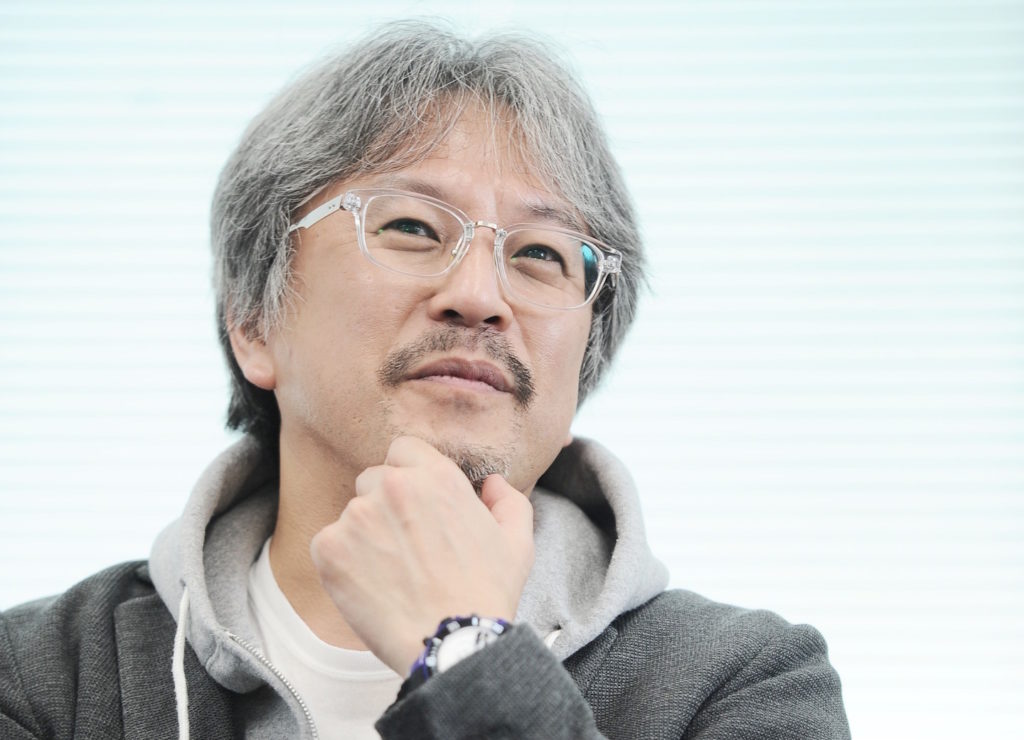 |
Fujisawa:
In that sense, I guess the distance between me and Mr. Horii is bigger.
Of course, when we were working together, we argued furiously and we stood by our opinions, despite of the difference in our positions, if we believed it was really necessary for the product. But when I look at him from a distance and think about all the things that Mr. Horii has accomplished, it just makes me realize that I can never do that. I don’t think I’ve never wanted to “surpass” him.
Aonuma:
Oh, okay.
――So are you saying that your viewpoint on Mr. Horii was changed after you stopped working with him?
Fujisawa:
Yes, it did. Apart from Mr. Horii, I realized that “Dragon Quest”, which I worked so hard to make, was doing just fine without me. So I’ve gotten to think about that and realized that it is Mr. Horii’s achievement because he was the one who was able to lead everybody to work harmoniously. There is no doubt about that. I think it’s something that only Mr. Horii could do. I admire him for that.
Aonuma:
Well, Mr. Fujisawa, you are making your own title right now, aren’t you?
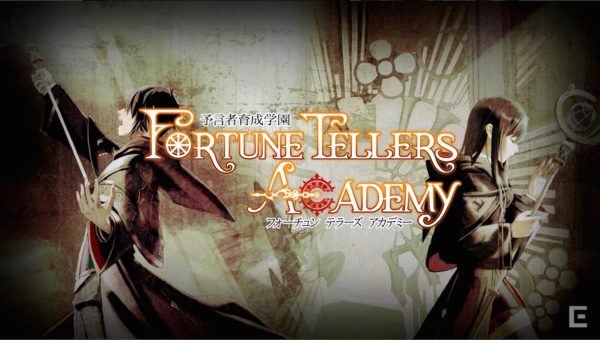
(Image: a clip from a promotion video of “Fortune Tellers Academy”)
There are times when I think I should get some distance from “LOZ.” But if I have to make a new IP, it can’t be done right away, so that’s why I’m still in the same spot.
Fujisawa:
I know. It’s easier to say than to do when it comes to making a new IP.(laughs)
Aonuma:
As I told you in the beginning, I tried to quit once.
But Mr. Miyamoto convinced me to stay and I went back to be the producer of “The Legend of Zelda: Twilight Princess (LOZTP) “. So it was necessary for me to join in the middle of the work, but I also realized that there were many ingredients to make an exciting game. So I started to think, “If I handle things properly, I think I could make a really interesting game.” Then, I wanted to be a director again.(laughs)
――Hahaha (laughs).
![Talk: Latest Zelda’s making process & “Ocarina of Time” proposal disclosed[Nintendo Eiji Aonuma x SQEX Jin Fujisawa]_041](https://news.denfaminicogamer.jp/wp-content/uploads/2017/03/ISM_9498-1024x677.jpg) |
The Meaning of Receiving the Baton for the Series
Aonuma:
So what I’m trying to say is that I quit once, but I came back. (laughs) There are things that you can only find once you have left the place. So I guess it was not really a bad idea to quit.
Fujisawa:
Is that so?(laughs)
Aonuma:
Well, Miyamoto still tells me I’m a beginner. So I guess it’s the same for everybody.
Fujisawa:
I think Mr. Miyamoto calls everybody a beginner, doesn’t he?(laughs)
Of course, when I decided to leave “DQ”, I knew there were still things that I wanted to do in “DQ” and I might regret my decision to leave. But I knew I could not do anything else if I were to stay because of that fear of regretting. So I took that risk when I decided to leave.
But I must admit that I envy Mr. Aonum for two things. First, you have been developing “LOZ” continuously and you have been making new games as a key member in the team.
Aonuma:
Well, same for you. The reason that the “DQ” series goes on is because Mr. Fujisawa succeeded the series and kept the legacy, isn’t it?
Fujisawa:
I hope so. (laughs)
Well, from the moment when Mr. Horii asked me to become the director, I wanted to keep the legacy by helping the young people play an active role in the work field of “Dragon Quest”.
![Talk: Latest Zelda’s making process & “Ocarina of Time” proposal disclosed[Nintendo Eiji Aonuma x SQEX Jin Fujisawa]_042](https://news.denfaminicogamer.jp/wp-content/uploads/2017/03/ISM_9428-1024x768.jpg) |
Since “DQ” was a product that I succeeded from somebody else, I didn’t want to be the director for it forever. So when I look at the young people who are working on “DQ”, I can’t help but think that my decision was correct.
――Mr. Fujisawa, I think that’s something that only you can say.
Aonuma:
Wow! I need to hand over baton!
Everybody:
(laughs)
Aonuma:
But, I want to find my own successor to hand over the baton. I don’t want anybody else to tell me that what to do. (laughs)
Fujisawa:
Well, I feel the same way. So, I’m happy to see that the same people who used to work with me are operating “10” and developing “11”. It’s a very pleasant thing for me to see.
――Before we go, I want to ask you one last question. Mr. Fujisawa, do you think you found the answer that you were looking for during this interview?
Fujisawa:
I’ve learned so much today and was also encouraged a lot. To be honest with you, I think I know what is best for myself and I already know what I need to do from now on. Today’s interview was a chance for me to confirm that.
Aonuma:
For me, too. As I was talking to Mr. Fujisawa, I learned many things that I didn’t know before. I’d love to have another talk over beer when we have a chance!
![Talk: Latest Zelda’s making process & “Ocarina of Time” proposal disclosed[Nintendo Eiji Aonuma x SQEX Jin Fujisawa]_043](https://news.denfaminicogamer.jp/wp-content/uploads/2017/03/ISM_9394-32-e1488356801304-1024x680.jpg) |
Shigeru Miyamoto vs. Yuji Horii. The Legend of Zelda vs. Dragon Quest. Mr. Fujisawa and Mr. Aonuma, two people who succeeded popular series from “geniuses” and making their own paths….What would the reader think about them?
The way that those two see their “teachers” is actually contrasting. Mr. Fujisawa admitted that he couldn’t surpass “Mr. Yuji Horii”, and felt honorable that he safely handed over the baton of DQ to the next generation. On the other hand, Mr. Aonuma tried to surpass his teacher, Mr. Shigeru Miyamoto, by keep making the series and opened a new door for this series of “LOZ.” At least for me, both of them made the right choices for themselves and they looked so cool about it.
The interview gave us a reason to keep our expectations up for their future work.
![Talk: Latest Zelda’s making process & “Ocarina of Time” proposal disclosed[Nintendo Eiji Aonuma x SQEX Jin Fujisawa]_044](https://news.denfaminicogamer.jp/wp-content/uploads/2017/03/ISM_9297-2-1024x6811-1024x681.jpg) |
Also, you should not overlook the fact that we unveiled the game development at Nintendo, which has never been seen before. But listening to them, what they are doing is so simple. In other words, they create a game in a way that works for them with care and with diligence. They are doing what they are supposed to do, but to the limit that others can’t reach.
It sounds so easy when you say it. But developing a 2D prototype or having 300 people play the game together in the process of making an Open World game is not an easy thing to do. When they said Nintendo did what they had to do, you just can’t help but realize what a great company Nintendo is.
But at the same time, you think that you can’t just get overwhelmed with the scale of Nintendo. Especially, considering the current environment which requires a big game development team, the demand for a more effective development system or the labor division raised quite a long time ago. Of course, efficiency is a very important element when you make something. But think about it. Can the Japanese game makers win in the world market by pursuing efficiency only?
When you think about the reason that the United States, a multiracial country, with different academic abilities and different backgrounds could succeed was because they had a labor division system like Fordism[*], you can’t help but think that there would be a suitable way that works for a unitary state like Japan with one race and one language. The episode that we heard in the interview that 300 staff members played the game together was maybe a bold answer for that task.
In that sense, it was done in Japanese style and there is much attention towards the success or failure of the new “LOZ” that directly challenged the ‘success formula’ of the current AAA title. The success or the failure of this “LOZ” would be the touchstone to foresee the future of the Japanese content industry, which has to survive in the furious global game business.
*Fordism
A system that Henry Ford built for mass production and sales of automobiles in 1910. With the application of scientific management, it tried to promote division of labor by breaking down the manufacturing process to the labor spot.
【Denfami-nico-gamer English article project vol.2】
(c)2017 Nintendo

![Talk: Latest Zelda’s making process & “Ocarina of Time” proposal disclosed[Nintendo Eiji Aonuma x SQEX Jin Fujisawa]_045](https://news.denfaminicogamer.jp/wp-content/uploads/2017/06/DCGeND7UAAERVnG.jpg)
